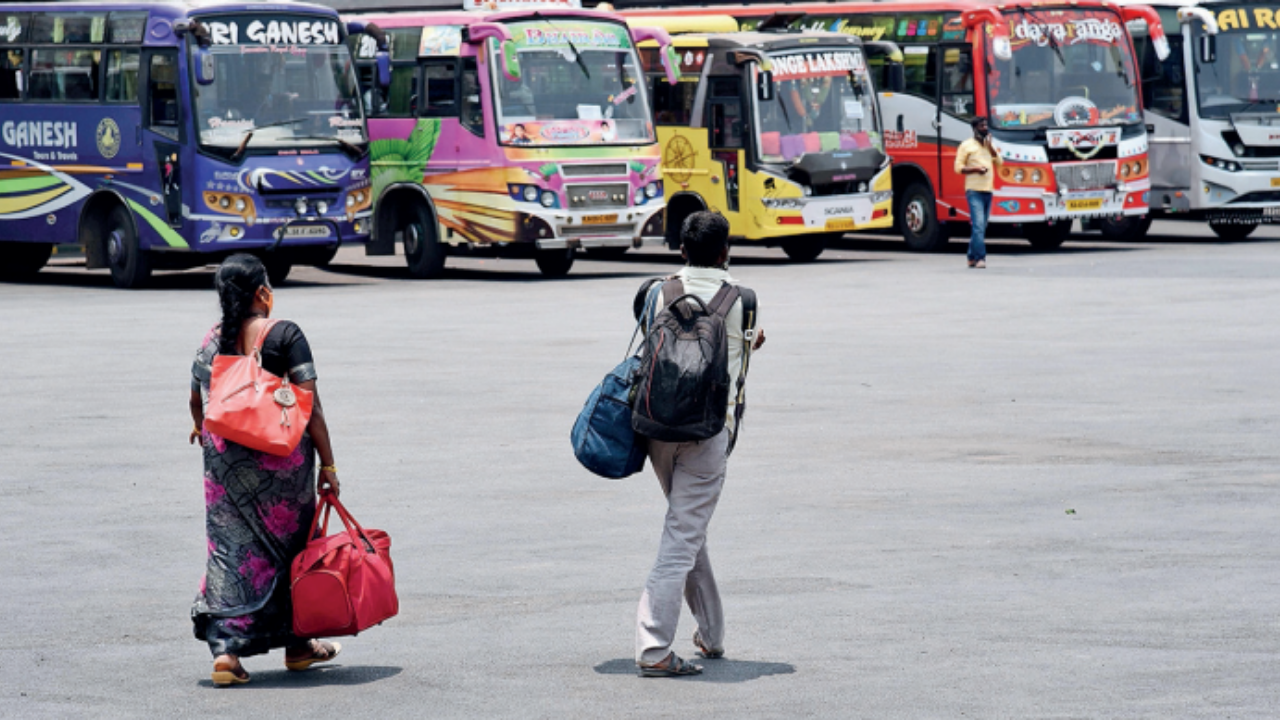
BENGALURU : Both officials and experts say transport minister B Sriramulu’s promise in the legislative assembly on Monday that the government would operate more state-run buses in rural areas to avoid mishaps like the one in Pavagada last week, is a tall order, given the deep financial distress state transport undertakings (STUs) are in. Instead, they suggest a hybrid model comprising a judicious mixture of STU and private buses in a 60:40 ratio.
STUs, already heavily bleeding, were given another jolt when oil marketing companies hiked the price of diesel by Rs 25 per litre for bulk users. Data shows the four STUs in the state — Bangalore Metropolitan Transport Corporation (BMTC), Karnataka State Road Transport Corporation (KSRTC), Kalyana Karnataka Road Transport Corporation (KKSRTC) and North Western Karnataka Road Transport Corporation (NWKRTC) — incurred a cumulative revenue loss of about Rs 2,800 crore over the past two years.
The rise in price of diesel will only deepen woes. KSRTC alone has a fleet of 8,500 buses and officials say its fuel bill has increased by Rs 94 lakh per day. It was spending Rs 5. 5 crore a day on diesel before the price was hiked. While the rise in cost of fuel is one issue, another is an acute shortage of buses. The four STUs together have a fleet of 24,300 buses and officials say at least 3,500 additional buses are required as more than 3,000 village routes are still deprived of STU services.
However, the government has procured only 640 diesel buses and 94 electric buses, which have been inducted into BMTC’s fleet. “Given the situation, the government’s promises of an adequate number of buses in rural areas sounds impractical,” said Prof C Ramachandraiah, an expert on public transport. “The time has come for STUs to share the burden with private operators. The government should think of a hybrid model. ” He said the government must strictly govern aspects of the model such as fare regulation to prevent private operators from exploiting passengers.
However, the comprehensive area scheme (CAS) implemented in 2019 has monopolised all routes in Karnataka in favour of STUs. While private operators are allowed in only 16 districts, mostly in coastal and southern districts, they can ply buses only till their permits expire. “This ill-conceived nationalisation of routes is the main cause of the crisis,” said KR Ramesh Kumar, Congress MLA and former speaker, who raised the issue in the legislative assembly on Monday. “Private buses are banned in rural areas and at the same time STUs are not plying their buses. ” K Rajavarma Ballal, president of Karnataka Bus Owner Federation, said private operators are ready to run buses on all routes if allowed and urged the government to scrap CAS.
But Rajendra Kumar Kataria, principal secretary, transport department, clarified that the government has allowed private buses to operate where feasible. He said as part of the government’s plan to ensure enough buses in rural areas, STUs on Tuesday applied for 10,000 permits during a meeting with the Karnataka State Transport Authority. “The government will procure 2,000 buses and they will be inducted into the fleet soon,” Kataria said.
Six people were killed and more than 40 seriously injured when a private bus toppled – some say at relatively high speed – in Pavagada taluk, Tumakuru on Saturday.







